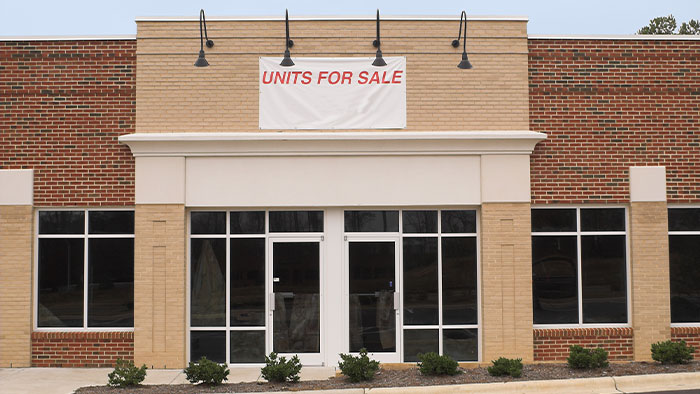REBA Energy Commercial Real Estate Principles
Q&A with the Renewable Energy Buyers Alliance (REBA)
- By [ Kaela Martins ]
- 06/03/2021
The Renewable Energy Buyers Alliance (REBA)’s Future of Real Estate Power (FoREP) program identifies solutions for commercial real estate building owners, operators, and tenants to key challenges and develops collaborative strategies to reduce emissions through energy optimization and renewable energy procurement. REBA’s Commercial Real Estate Principles, a foundational tool to support FoREP, leverages tenant and landlord demand for sustainable energy solutions to transform how owners, operators, and tenants view emissions reduction potential of commercial buildings. These tools can benefit all retailers who lease space, not just REBA members.

We sat down with Lily Proom, Senior Associate, Supply Chain & International Collaboration, at REBA to learn more about the principles and how retailers can get involved.
1. Who is REBA and what are their main initiatives?
The Renewable Energy Buyers Alliance (REBA) is a membership association of over 250 energy buyers, energy providers, and service providers that are working to create a resilient, zero-carbon energy system where every organization has a viable, expedient, and cost-effective pathway to renewable energy. REBA has a number of initiatives to bring organizations closer to achieving this goal. Through its Education & Engagement initiative, REBA offers transactional education for energy buyers who are starting out in their sustainable energy journey, as well as buyers looking to employ more advanced renewable energy strategies. REBA’s Market & Policy Innovation initiative engages in policy advocacy to expand access to clean energy, and to equip energy buyers with research and analysis so that they are better positioned to take part in shaping policy and market design. Finally, REBA’s Supply Chain and International Collaboration initiative creates resources and tools to help energy buyers address and reduce the emissions from their supply chains and international operations.
2. What is the Future of Real Estate Power (FoREP) program and how can retailers get involved?
The Future of Real Estate Power (FoREP) program is part of REBA’s Supply Chain and International Collaboration initiative. As more corporates look to address their Scope 2 and 3 emissions, managing and reducing emissions from commercial real estate will become increasingly critical for both tenants and landlords. Recognizing this issue, the FoREP program develops resources and a community of practice to help landlords and tenants address the toughest challenges of renewable energy procurement and energy management in commercial real estate. Retailers that are interested in participating in this program and joining the community of tenants and landlords that are collaborating on solutions to reduce emissions from commercial real estate are encouraged to reach out to REBA to discuss membership options.
3. What are the Commercial Real Estate Principles?
The Commercial Real Estate Principles are a set of statements intended to guide and encourage landlord-tenant collaboration to accelerate renewable energy procurement, energy efficiency, and data sharing in commercial real estate. While developing this resource, the Future of Real Estate Power group recognized that communication across stakeholder groups is a key challenge to successful implementation of sustainability practices in commercial real estate. There are multiple stakeholders involved in lease transactions, and often critical players are not involved when they should be or do not have the education they need. As such, the Commercial Real Estate Principles place a strong emphasis on collaboration and communication across all stakeholder groups, including tenants, brokers, agents, building owners, building managers, and contractors, and are designed to support all players in their pursuit of sustainable solutions in commercial real estate. The Principles are non-binding and non-prescriptive; they are meant to meet each company where that company is in its sustainability journey. Any company, regardless of the maturity of its sustainability efforts, is encouraged to sign on and use the Principles to support its sustainable energy goals.
4. How can retailers use the Commercial Real Estate Principles to help meet renewable energy and sustainability goals?
The Commercial Real Estate Principles are designed to help companies at all levels of sophistication with regards to energy sustainability meet their renewable energy and sustainability goals. The Principles serve as a catalyst to start the conversation between landlords and tenants about what sustainable energy management in commercial real estate should look like, from renewable electricity procurement, to data sharing, to public disclosure of energy performance. Retailers can use the Principles to guide these conversations and ensure that discussions around renewable energy and sustainability goals are comprehensive. Signatories of the Principles are also encouraged to include the Principles in RFP documents, to ensure that potential tenants or landlords adhere to the best practices outlined in the Principles, and are prepared to collaborate so that both parties can meet sustainability targets.
The Principles are also a demonstration of industry demand for sustainable energy solutions in commercial real estate. By signing on, companies can send a market signal of their desire for commercial real estate that is powered by renewable energy and accelerate the pace at which solutions become available.
5. Who can sign on to the Commercial Real Estate Principles?
Any company is encouraged to sign on to the Commercial Real Estate Principles to show their demand for sustainable energy solutions in commercial real estate and join the community that is working collectively to advance responsible energy practices in the industry. The Principles are non-binding, and there is no fee or REBA membership requirement to sign on. To sign on to the Principles, download the Signatory Form on REBA’s website and send to Lily Proom at lproom@rebuyers.org.
6. Who should retailers contact to learn more?
To learn more, contact Lily Proom at lproom@rebuyers.org.



